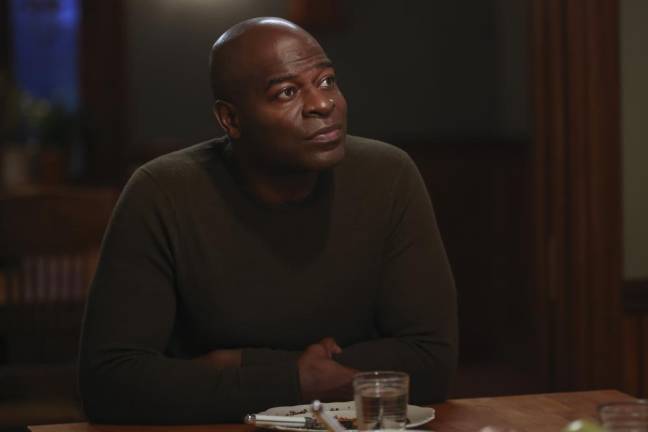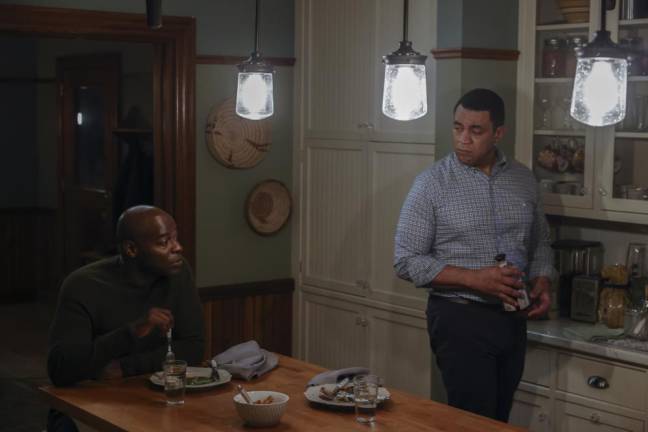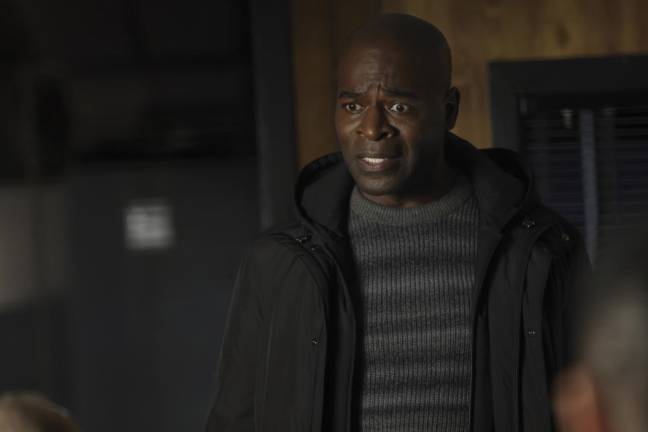Hisham Tawfiq’s path to acting was far from ordinary. “The Blacklist” star, who was born and raised in Harlem, joined the Marines after high school and the then-recent death of his father, who was an imam and avid follower of Malcom X; he is the oldest of five brothers. Tawfiq later returned home and became a firefighter, notably taking part of rescues during 9/11. Acting had always been his main passion, and he decided later in life to try it full time.
This week’s episode goes deep into the backstory of his character, Dembe, following a two-year time skip in the series brought on by shutdowns during the pandemic. Tawfiq talks about his role on the show as well as his life in New York in this interview, which has been edited for length and clarity.
What do you think makes “The Blacklist” so successful?
One of the distinguishing characteristics is that usually the Blacklisters are these international characters, they usually always have somebody representing some country, which I think has helped for it to become an international hit. They’ve incorporated different languages, different countries, foods from those countries. And people get to experience that, even if they haven’t visited those places.
Did you have any favorite moments on set filming the new episode?
Gbenga [Akinnagbe], who played Boukman Baptiste, is someone I watched for a long time, especially when he was first on “The Wire.” Then getting to know him personally and growing that relationship and then seeing him on set – it made a full circle moment.
You’ve been playing Dembe for a really long time. Is there any other role that would be a dream role for you?
I’m a sci-fi geek. I would love to do “Game of Thrones” type of stuff. I just watched “Wheel of Time.” So anything that has to do with sci-fi or space or even westerns, those are dream roles for me.
How much of Dembe and his experience comes from your past as growing up with an imam father and being a Black Muslim?
When I auditioned for this role, there weren’t lines, it was improv. I actually took everything from my life, and incorporated it into this mock interview I had with the producer. When they asked me who my father was, who my mother was, I said “My mother was a nurse, my father was an imam.” I use a lot of my personal life to inform these characters’ choices. Then as it evolved, I already had this foundation, so that anything else that came down the pipe, it aligned with the foundation.
Do the creators still give you a relative degree of freedom to let you make those choices and incorporate parts of your past into the character?
I would say we’ve just had many conversations about my past and what I’ve experienced. And I’ve shared that with them just to help them guide them or inform them about what what is realistic and what isn’t. What things we should highlight based on what I went through. For the most part, I would say they have welcomed that and incorporated into Dembe’s story.
You are a well-established Black Muslim actor. Do you feel a pressure on you to be a perfect representation for people?
I don’t think we can be a perfect representation. But I do think there is a pressure to make sure that we do show – especially with Dembe being an African Muslim – I did feel an immense feeling to do right by the religion, and do right by the people and show what a Muslim character is like in a positive way. None of us are perfect. No, religion is perfect. One of the thing they say in Islam is, Islam is perfect, and we strive to be perfect by following a religion.
I had conversations with the creators about this, just as far as really showing this character as a full human being and showing what it’s like as a practicing Muslim. Showing him praying, showing him talking to his imam, showing his dietary restrictions. In a way, it educates people without hitting them over the head, and normalizes that we all have these different cultural and religious practices, but there are also likenesses in it.
Your family’s in New York. You grew up in New York. Do you think do you ever think about going to LA or somewhere else?
I remember when I first started acting everybody was moving to LA. I was made to feel that I wasn’t really serious, because that was the place where everybody went. But at the time, I was working for the New York City Fire Department, and I didn’t want to leave that job. So I always struggled with making the choice to stay in New York. But I think the way things turned out I made the right choice. I’m a New York guy.
You mentioned firefighting. Do you ever miss that part of your life? Do you ever miss firefighting?
I do and I don’t. I definitely miss the camaraderie. I’ve always loved the adrenaline rush of emergency response and helping people. My brother’s actually a firefighter at my old firehouse, so I’m still connected to my firehouse. But I don’t miss jumping up at all times of the nights and responding in the cold or in the heat. And I do like being home every night with my family. So, there’s a love-hate thing now with the fire department.
You always wanted to be an actor. Do you ever feel like you missed out on a longer acting career? Because you needed to get a more functional career early on in your life?
I discovered later on that it was probably a blessing that it happened when it happened. When I was younger I really thought I was missing out. But I think waiting later allowed me to really train and really get to know myself. And now I think I’m much more prepared now for anything that comes my way.


